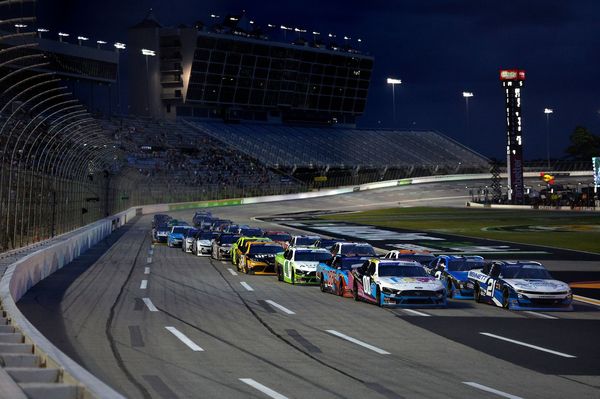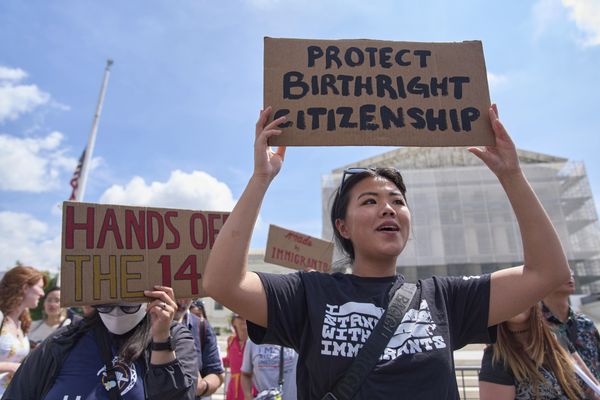THE SERIES: "Good Girls Revolt"
WHEN, WHERE: Now streaming on Amazon Prime
WHAT IT'S ABOUT: Patti Robinson (Genevieve Angelson) is a smart, driven reporter who must accept the less prestigious title of "researcher" after joining the News of the Week magazine. She has an in-office love interest, Douglas Rhodes (Hunter Parrish), a callow pup of a reporter who serves mostly to remind her of her reduced stature in the clubby male-dominated newsroom. Other women there, like Cindy (Erin Darke) and Vivian (Lea Michele Cohen), also do much of the work, and get none of the credit, which goes to the male writers who get the bylines and bigger paychecks. Even ambitious, and adroit, office politician Jane Hollander (Anna Camp) is beginning to chafe. One day, some of the women attend a meeting given by Eleanor Holmes Norton (Joy Bryant), who will one day chair the federal Equal Employment Opportunity Commission, but in the late '60s _ when this is set _ becomes pied piper to a group of reporters who will rebel against their employer.
This 10-episode series is based on "The Good Girls Revolt," by former Newsweek reporter _ later senior editor _ Lynn Povich, who, along with 46 other Newsweek staffers filed an EEOC complaint against the magazine in 1970, and prevailed.
MY SAY: Television series almost always get the journalism profession wrong because they want the profession to be something that it is not _ some sort of breathlessly romantic pursuit of truth and justice, where a crusty editor barks out "Get me rewrite!" followed by "Hold the front page!" Blame Ben Hecht and Charles MacArthur for the classic 1928 play which was _ in fact _ named "The Front Page," and which has taken up permanent residence in the Valhalla of Hollywood mythmaking. "The Wire" finally corrected the record, but the romantic Hildy Johnson archetype _ and myth _ endures.
As further evidence (or confirmation) comes "Good Girls Revolt," which as period drama gets the era mostly right, but as workplace drama gets the profession mostly wrong. No editor in any newsroom ever has _ or ever will _ utter phrases like, "I need the fastest rewrite man in the building," or, "Let's commit journalism here." Those aren't just ghastly platitudes, but fireable offenses. And while I wasn't there to corroborate, I'm also fairly certain no respectable Newsweek reporter ever blasted "In-A-Gadda-Da-Vida" on their portable radio in a newsroom either. Also fireable _ for being so hopelessly cliched. (At least no one wore headbands, chain belts or go-go boots to work in the pilot).
Those other offenses occur in the pilot _ which has been posted online for months _ but viewers really need to venture deeper here to see what's really going on. Other than the bitter irony that neither truth nor justice were served on the editorial staff of Newsweek _ or those of other major news organizations _ in the '60s, "Good Girls" isn't about the profession of journalism. Rather, it's about a group of young women as they grope toward equality in a world stacked against them. This could just as easily be set in an insurance office.
While the series is also about how they reach a point where they decide to finally revolt, "Good Girls" doesn't want to turn into a feminist manifesto either. Hence, vestiges of Hildy, even touches of rom-com.
In a recent interview with The Washington Post _ which incidentally owned Newsweek all those years ago _ "Good Girls" creator/showrunner Dana Calvo explained that the series is intended to be "fun, sexy, adrenaline-filled" and to "serve the story _ not the history." However, Povich wrote an important and relevant book about a serious issue that continues to permeate _ or is the word "infect?" _ workplaces. Doesn't a show that's based on it have an obligation to put the history before story?
In fact, as strict adaptation, "Good Girls" often does seem inauthentic or, worse, trivial. But this isn't an "adaptation," but instead "inspired by" the Povich book.
Accept "Good Girls" for what it really is _ an ensemble drama with an appealing cast and important subtext _ and you just might be pleasantly surprised.
BOTTOM LINE: "Good Girls" gets the journalism part almost laughably wrong, but as an ensemble drama with a good cast, high production values, and much else, even a crusty editor might observe that, "This story has legs."
GRADE: B







